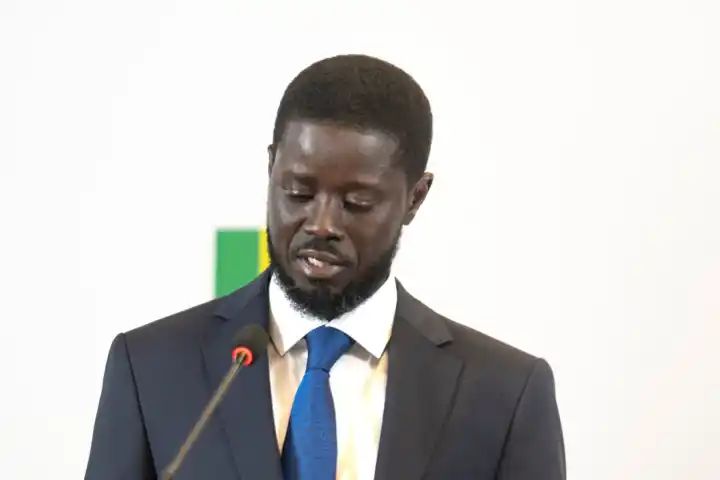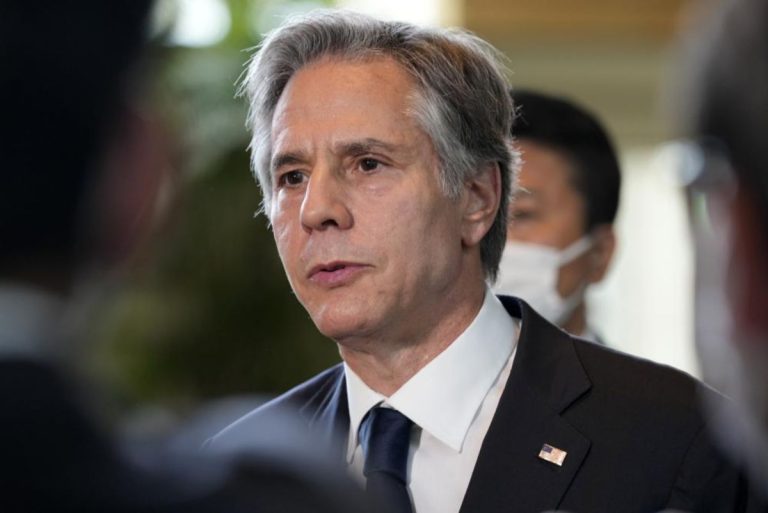Senegal’s little-known opposition leader Bassirou Diomaye Faye is named the next president

Senegal’s little-known, 44-year-old opposition leader Bassirou Diomaye Faye was named the country’s next president on Monday, less than two weeks after being released from prison to run in the election.
While official results of Sunday’s vote were not yet available, the former prime minister who was the other frontrunner, and who was backed by incumbent President Macky Sall, conceded defeat based on preliminary results. Sall followed with congratulations, also naming Faye as the winner.
Faye’s victory reflected frustration among youth with high unemployment and concerns about governance in the West African nation. In his first speech delivered as president-elect late Monday, the former tax inspector promised to a fresh chapter following the months of violence and many political arrests that led up to the election.
“I pledge to govern with humility and transparency, and to fight corruption at all levels. I pledge to devote myself fully to rebuilding our institutions,” he said, restating promises made during his campaign.
Faye, who was backed by popular opposition leader Ousmane Sonko, has vowed to improve Senegal’s control over its natural resources by promoting national companies to prevent the country from falling into what his campaign called “economic enslavement.” He ran in the place of his close ally Sonko, who was barred from running due to a prior conviction.
Sonko was also released on March 14 after months in prison to jubilant celebrations in the capital, following the president’s announcement of a political amnesty.
The outgoing president Sall, who triggered violent protests earlier this year when he unsuccessfully tried to postpone the election until the end of the year, described the outcome of the vote as a victory for Senegal. His former prime minister and the loser in the race, Amadou Ba, wished Faye success in a statement shared by his campaign team.
The election on Sunday followed months of unrest ignited by Faye and Sonko’s arrest last year, and concerns that the president would seek a third term in office despite constitutional term limits. The violence shook Senegal’s reputation as a stable democracy in a region that has seen a wave of coups. Rights groups said dozens were killed in the protests, while some 1,000 people were jailed.
The expected winner of the election, Faye is a former tax collector and was little known until Sonko named him as his heir.
His roots lie in a small town in central Senegal. He is a practicing Muslim. Ahead of Sunday’s election, Faye published a declaration of his assets, and called on other candidates to do the same. It lists a home in Dakar, and land outside the capital and in his hometown. His bank accounts hold roughly $6,600.
“I would even say that he is more honest than me. I place the project in his hands,” Sonko told supporters at a joint news conference in March of last year. Weeks later, Faye was arrested and jailed on various charges, including defamation.
Alioune Tine, founder of Afrikajom Center, a Senegalese think tank, said the outcome of the vote proved Senegal would survive after a difficult year that had undermined the population’s faith in democracy.
“From prison to the presidential palace,” said Tine. “The only country in Africa capable of withstanding a disease of its democracy that has shaken all its institutions, profoundly shaken its society, only to recover from it.”
International analysts said a change in leadership in Senegal would come as a relief after months of violence, but raised new questions about the foreign policy of the new government at a time when the coastal nation is becoming an oil and gas producer.
On Monday night, Faye outlined some early foreign policy priorities, which included reforming the troubled West African regional bloc known as ECOWAS.
“A win by the opposition also means major changes ahead in domestic and foreign policies,” said Rida Lyammouri of the Policy Center for the New South, a Morocco-based think tank, adding that a promise to move away from former colonial power France could define the foreign policy of the country’s new government.
Across neighboring countries in the Sahel, including Burkina Faso, Mali and Niger, that recently experienced military coups, sentiment has turned against France. The ruling juntas have ended military cooperation with France, while turning instead to Russia for support.
The vote was largely peaceful with a high turnout, observers said. Early counts showed voters turned out overwhelmingly in favor of the opposition. Sonko promised a resounding victory on his YouTube channel. By the evening in Dakar, Faye had been declared the winner and celebrations erupted in Dakar.
In neighborhoods around the capital, supporters danced, played music and set off fireworks until late at night.
“Our democracy will emerge stronger from these results,” said Ndeye Sow, 27. “We’re delighted, there was no violence here, serenity is the order of the day.”
More than 7 million people were registered to vote in a country of roughly 17 million. To win, candidates had to secure more than 50% of the vote. It was Senegal’s fourth democratic transfer of power since gaining independence from France more than six decades ago.





